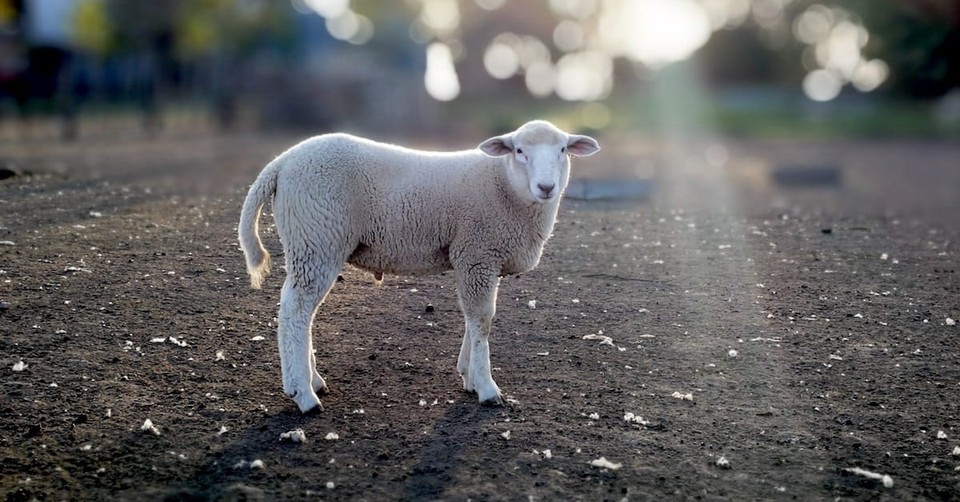Atonement is one of those words you’ll likely hear in church or see on Christian blogs. But what does it mean? Surprisingly (or maybe unsurprisingly) atonement is attached to a few controversies within Christianity. My goal here isn’t to exhaust those controversies but instead to simply explain what the word atonement means, as well as to give you a picture of atonement.
Simply put, the word atonement means reconciliation.
It refers to the condition of being one with others. More specifically atonement is a reference to the sacrifice that Jesus Christ made in order to reconcile sinners to a holy God. Wayne Grudem summarizes this well when he says, The atonement is the work Christ did in his life and death to earn our salvation. It might be best to illustrate atonement and tell the story of atonement. Consider Mark 10:45.
For even the Son of Man came not to be served but to serve, and to give his life as a ransom for many.” –Mark 10:45
Photo courtesy: Unsplash
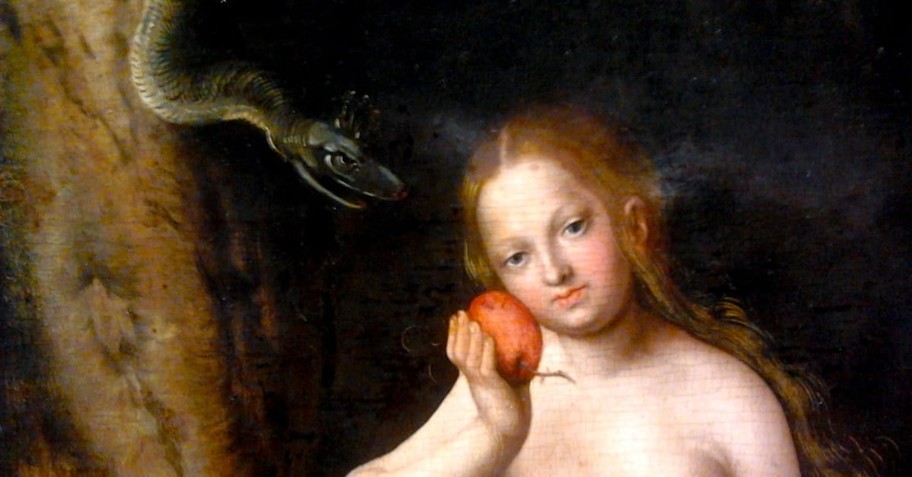
What does it mean that Jesus gave his life as a ransom?
In order to answer that question we need to go back…way back…back to the Garden of Eden.
In Genesis 1:29 we see the Fatherly heart of God. He has given the first couple everything they need. If they need it, God has provided it. Genesis 1 is the wide angle picture of the creation account and Genesis 2 is the more personal encounter. In Genesis 2, as the camera pans in on Adam, we see his need for a suitable helper. This need is fulfilled by God. Genesis 2:18-25 is a picture of God fulfilling what he said in Genesis 1:29. Everything they need will be provided by God.
In Genesis 3 we find something the first couple does not have. And the serpent magnifies it. He shines a spotlight on the thing which they do not yet have. They do not yet know the difference between good and evil. And the serpent uses this lack to convince them that their Father is ripping them off. The serpent suggests how they can get what they lack.
In this moment the goodness of God is questioned. “Every good and perfect gift comes from the Father”, and the serpent questions this. He convinces Eve, and later Adam, that there is something good which has not been given to them. “God knows that when you eat of it your eyes will be opened, and you will be like God, knowing good and evil”. This is his not so subtle way of saying, “If you want something you’ve got to take it yourself”. The serpent wedged his cloven hoof into the heart of man and woman, dug in a little, and created a void in their heart. Then he said, “I’ll tell you how to fill it”.
Photo courtesy: Wikimedia Commons
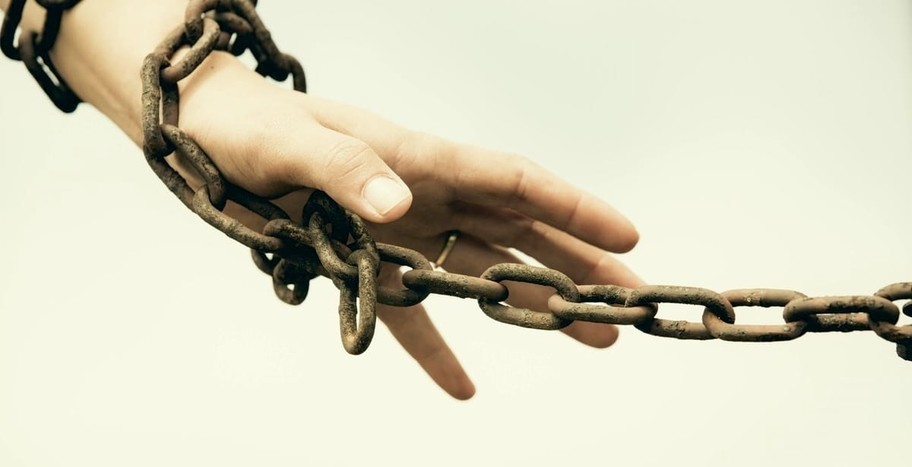
Their story is our story.
An important point in the story happens in verse 7 of Genesis 3:
The eyes of both are opened, and they know that they are naked.
Let that statement sit there for a moment. Pretend that you do not know the story.
But you do know that story, don’t you? You know that story because it is our story.
What will Adam and Eve do at that moment when they feel their emptiness? What will happen when their brokenness cries out to them? What happens when your eyes are open to not only your brokenness but also the shame and guilt that come with sin?
What do you do when the guilt of fudging the numbers on your taxes starts to creep up? What do you do when you sought out love and affection on a computer screen? What do you do when you’ve gotten a little too close to that co-worker of the opposite sex? What do you do when you blow it as a mommy or daddy? What do you do when your eyes are opened and the shame and guilt of failing is nagging at you? What do you do? Where do you go? How do you get the nag to go away? How do you get that conscience to quiet?
The answer to these questions is related to the word atonement.
Photo courtesy: Lightstock
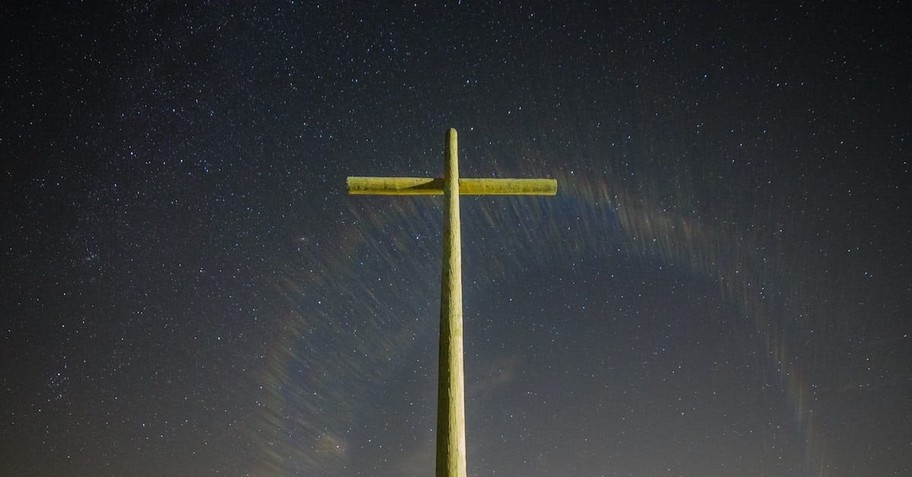
What you are longing for in those moments after you’ve fallen is atonement.
The English word is a combination phrase originally meaning “at-one-ment” or “at-one-with.” It means that you feel in every bit of your being the fracture in our relationship with God and you desire for it to be made right. That doesn’t mean you desire God, necessarily. But it means that you are created in the image of God and you know things are not as they were meant to be.
So, what did Adam and Eve do in that moment? “And they sewed fig leaves together and made themselves loincloths.” They were laid bare before each other and before the Creator of the universe. Their solution shows us how deeply sin had already penetrated their hearts. They did not think of going to the Father who said he would provide everything they need. Instead, they attempted self-atonement.
And we have been doing the same thing ever since.
But it doesn’t work.
Photo courtesy: Unsplash

Self-atonement never works.
Our first parents heard the sound of the LORD God walking towards them. At first, they probably figured their fig leaf underpants would hold up under His scrutiny. But as the holy God came closer they knew it wouldn’t be enough. Deep down they knew it wasn’t enough so they decided to hide in a bush just for good measure. Self-atonement never works.
Sin is not conquered in the darkness of hiding—it grows. And because sin aims at destroying creation and dethroning the Creator it inevitably leads to brokenness. You can’t fix the effects of rebellion by rebelling further. Nothing we craft can fix our sin problem. That solution to our sin problem is what the Bible calls atonement.
Photo courtesy: Unsplash

Where do we see atonement in the Old Testament?
Adam and Eve sewed for themselves loin-cloths out of figs to try to cover their nakedness. It didn’t work. But what does work are the animal skins which God crafted into a covering for them. This is a picture of atonement. God makes a sacrifice to cover the sin and shame of humanity. Jon Akin says it well:
Though there is nothing explicitly stated in the text, this is an early indicator of what will take place in the sacrificial system. Animals will be sacrificed and their blood shed in the place of sinful man, culminating with the blood of the Messiah – the Lamb of God. (From here)
What is present in the sacrificial system is present in seed form in Genesis 3. God created an atonement for Adam and Eve’s sin based on the shedding of blood of innocent animals. These innocent animals served as substitutes. A substitute paid a price by blood which is accepted by God to restore the broken relationship. That is what we see all throughout the Old Testament in the sacrificial system.
But this begs a question…
Photo courtesy: Unsplash

Why is blood necessary? Is God blood-thirsty?
This can all seem a little barbaric to us. It sounds a bit like something we would read of the angry and tyrannical Roman gods who required sacrifices in order to appease whatever whim they had that day. Why does God require a goat to die in order for a person to live? Is the God of the Bible no different than the pagan gods we read about? I appreciate the way The Bible Project has answered this question:
The problem is, when we come to read about animal sacrifice in the Bible, we unfortunately assume that the same gods are at work. Much of popular Christian belief has simply imported this pagan storyline, reminiscent of the Greek and Babylonian cultural texts referenced above, into Leviticus and the stories about Jesus’ death on the cross. The result is a tragic irony. What the Bible is portraying as an expression of God’s love gets twisted into something dark. Our version goes like this:
God is holy and perfect. You are not. Therefore, God is angry at you, hates you even, and so he has to kill you. But, because he’s merciful, he’ll let you bring this animal to him and will have the animal killed instead of you.
Our sin really has made a fraction between us and God. We have broken fellowship with God. We’ve also wreaked havoc upon God’s creation—which includes other people. Therefore, restitution must be made.
Photo courtesy: Unsplash
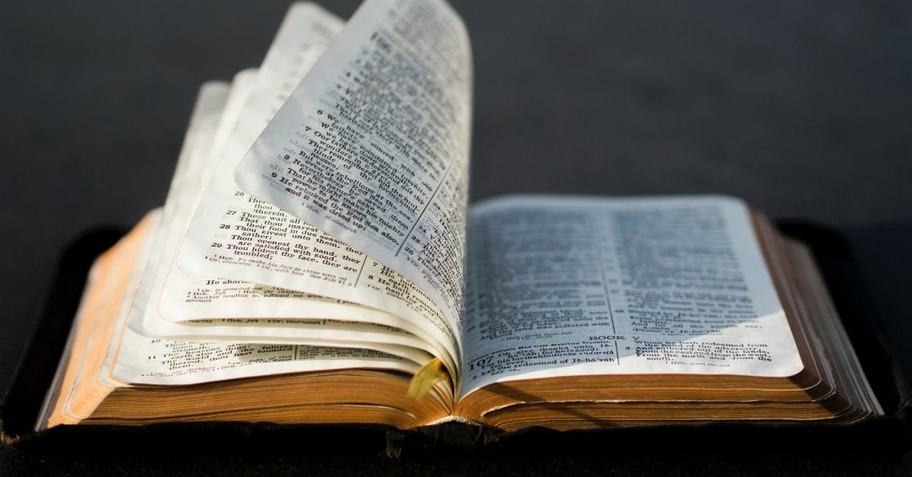
Leviticus 17:11 tells us why blood is necessary.
"For the life of the flesh is in the blood, and I have given it to you on the altar to make atonement for your souls; for it is the blood by reason of the life that makes atonement." The wage of sin is death. And life is found in the blood. Therefore, in order for the wages of sin to be paid blood is required. This shows the seriousness of sin and the holiness of God.
Animals were sacrificed in the Old Testament, and in Genesis 3, to ultimately point to the Lamb of God. This is what Jesus meant in Mark 10:45 when he said his life was given as a ransom.
Photo courtesy: Unsplash

Jesus, the Perfect Substitute
The author of Hebrews helps us see that the Old Testament sacrifices were incomplete—they were just a shadow pointing to the reality. As Hebrews 10:1-3 says:
"For the Law, since it has only a shadow of the good things to come and not the very form of things, can never, by the same sacrifices which they offer continually year by year, make perfect those who draw near. Otherwise, would they not have ceased to be offered, because the worshipers, having once been cleansed, would no longer have had consciousness of sins? But in those sacrifices there is a reminder of sins year by year."
This is why the sacrifices had to be done over and over and over again. But Christ was able to make a once for all sacrifice. He is the perfect Lamb of God.
Photo courtesy: Thinkstock/RomoloTavani

Again the author of Hebrews helps us:
"But when Christ appeared as a high priest of the good things to come, He entered through the greater and more perfect tabernacle, not made with hands, that is to say, not of this creation; and not through the blood of goats and calves, but through His own blood, He entered the holy place once for all, having obtained eternal redemption. For if the blood of goats and bulls and the ashes of a heifer sprinkling those who have been defiled, sanctify for the cleansing of the flesh, how much more will the blood of Christ, who through the eternal Spirit offered Himself without blemish to God, cleanse your conscience from dead works to serve the living God?" (Hebrews 9:11-14)
Christ has made a perfectly sufficient atonement for all those who will trust in Christ. Just as in the story of the Exodus the Israelites had to place the door of the lamb on their doorpost, so too we must apply the blood of Christ. The atonement is effectual when sinners, by faith and repentance, apply the sacrifice of Christ to themselves. Through our union with Christ his death becomes our death and his life becomes our life.
Photo courtesy: Unsplash

Conclusion
Self-atonement does not work. We can never pay for ourselves because self-sufficiency and self-reliance is part of the problem. When Adam and Eve looked outside of God for provision that is when their trouble began. So also, we must look to God alone to make this sacrifice on our behalf. Only Christ could make the perfect sacrifice.
Has his work been applied to your account?
Mike Leake is the Lead Pastor at FBC Marionville in Marionville, Missouri. He is currently pursuing his M.Div. at Southern Baptist Theological Seminary. Mike is married to Nikki, and they have two children, Isaiah and Hannah. You can follow him on Twitter @MikeLeake.
Photo courtesy: Unsplash
Originally published June 07, 2018.
